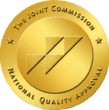Does the WTC Cover Mental Health Rehab?
Yes, the WTC Health Program provides coverage for mental health services, including mental health rehabilitation, for eligible individuals affected by the 9/11 attacks. The program covers various mental and behavioral health services, including individual and group therapy, psychiatric medication management, prescription drug plans, wellness programs, support groups, and post-traumatic stress disorder (PTSD) treatment.
Additionally, the program offers outreach and education to support people in understanding the mental health resources that are accessible and how to use them. You must be registered in the program and satisfy the program's eligibility requirements, which are based on particular exposure and residence requirements connected to the 9/11 attacks, to be eligible for coverage under the WTC Health Program for mental health treatments.
Inpatient and Outpatient Addiction Recovery Centers That Take WTC Health Insurance
Virtue Recovery Center has assisted people on their road to sobriety for years, offering treatment facilities in multiple states. Our effective treatment programs for drug addiction, alcoholism, dual diagnosis, trauma treatment, and eating disorders have been developed by expertly trained addiction treatment specialists. These plans include inpatient care and residential treatment programs, sober living options, aftercare, and more.
The Joint Commission accredits all of our inpatient and outpatient treatment facilities, and we are members of the National Association of Addiction Treatment Providers (NAATP) while remaining HIPAA compliant. Below you'll find links to all of our centers that are part of the World Trade Center Health Program Addiction Recovery provider network:
How Much Does Addiction Recovery Cost with WTC Health Insurance?
Eligible individuals do not have to pay out-of-pocket for WTC Health Program-covered services. The program pays for the total cost of medically necessary substance use disorder (SUD) treatment services without imposing copays, deductibles, or premiums. Additionally, there are no annual or lifetime limits on coverage for medically necessary treatment.
The program immediately covers all monitoring, treatment, and pharmaceutical expenditures associated with a certifiable WTC-related health condition for responders, survivors, and others affected by the 9/11 attacks.
Workers' compensation is the main payer for responders, and the program covers the remaining costs if a responder has a workers' compensation claim for the certified condition. However, to speed up processing in certain situations, the program will pay immediately and then, as necessary, seek reimbursement from the settlement or the workers' compensation insurer.
The WTC Health Program immediately covers the one-time first health assessment and screening tests for eligible survivors. Then, once your primary health insurer has paid its portion, the program compensates the balance of your treatment and pharmaceutical costs for recognized WTC-related health conditions.
Your private health insurance is billed first by the program. Next, any public health insurance you may have, such as Medicare or Medicaid, is then billed by the program. Finally, the program covers any outstanding balance once your other health insurance providers have made payments.1




